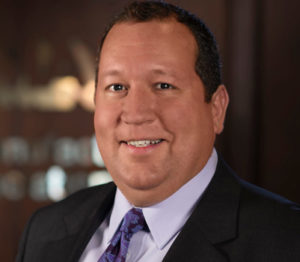
Legislation this season in Illinois has brought to light new concerns regarding consumer protection and elder financial abuse. During last year’s Illinois General Assembly, bill SB2385 as originally written would have allowed nursing homes to require residents to give them power of attorney over their bank accounts so the nursing homes could check on residents’ eligibility for Medicaid.
“Illinois is a mess,” said Jerry Peck, senior vice president of governmental relations for the Community Bankers Association of Illinois. “The State of Illinois has a significant backlog in processing Medicaid eligibility forms. One estimate pegs the backlog at 15,000 applications waiting to be processed. Nursing homes and the Illinois Department of Human Services have claimed that a portion of that delay is related to issues obtaining financial records from financial institutions in order to determine eligibility,” Peck said.
Nursing homes took the backlog as an opportunity to try to gain power of attorney, Peck said. “Obviously banks have great concern over nursing homes, some of whom may use the information to exploit their patients, having access to their private banking information. As a compromise, we created a program where the nursing home can request that the information be sent to the state regulators to help speed up the verification process, but it cannot be shared with the nursing home. It is for internal use by the state regulators only.”
During this year’s General Assembly, the same group is supporting legislation that would allow attorneys for nursing homes to subpoena residents’ banking records, again using the backlog of Medicaid verification as rationale. According to the bill synopsis for HB3042, an attorney for a nursing home may issue subpoenas on behalf of the Department of Human Services, even without department authorization.
“We have so far been successful stopping the legislation, but I suspect they will continue to look for ways to get their hands on private financial data,” Peck said. “This is not to say that we believe that all nursing homes are bad actors. We are always concerned with protecting the privacy of our customers’ financial data.”
“There really is a legitimate problem with getting Medicaid verification, but instead of saying, ‘Let’s find a common sense way to verify,’ they over reached to get more info than they probably should have their hands on,” Peck said. He doesn’t believe the bill will pass this year.
Another area of concern is the state’s updated unclaimed property act as it pertains to certificates of deposit.
It was re-written in 2017, and went into effect on Jan. 1, 2018. The bill was poorly written, however, with the Uniform Law Commission essentially making a sales pitch for it to the General Assembly, Peck said. With Illinois’ financial situation being rather dire, the idea of bringing in $10 million per year through abandoned property was very attractive.
The way the new law is phrased requires banks to escheat the CDs to the state after three years, even if the CDs are in the middle of a term. It also removes the option for having a CD auto-renew. “It’s not uncommon for customers to allow CDs to roll over for decades as long-term savings vehicles,” Peck said.
One state senator mentioned to Peck that she kept getting letters from her bank regarding CDs she had set up for her grandkids. She kept throwing the letters in the trash because she didn’t plan on touching them for another 10 years. “This is where the problem comes,” Peck said. “Elderly customers are particularly susceptible to this trap because they are accustomed to having their CDs auto-renew.” And it’s such a hassle, perhaps even impossible, to get funds returned because the system is onerous and confusing. “Unclaimed property laws are a good thing, but if you’re too quick to take it, you may be harming some people.”
“It’s scary when the state just comes in and confiscates it,” Peck said.
As a fix to the bill, CBAI, the Illinois Bankers Association and the Illinois Credit Union League negotiated with the Illinois Treasurer’s Office and introduced HB2677, which offers a consolidated statement rule, so if you have any activity on any of your accounts at the bank, it “should show that you’re alive, and none of those accounts should be considered abandoned,” Peck said. It also moves the abandonment period for CDs from three years to five.
“Identical legislation passed the Senate unanimously last year before a brick was put on it in the House,” Peck said. CBAI is hoping it will be included in HB2461 as a RUUPA omnibus bill.
This bill is currently in the house but passing it would cost the state $10 million annually. The Illinois Speaker’s office didn’t believe it would make it to a vote because of budget impact, according to Peck.
Colorado, Kentucky, Tennessee and Utah have enacted ULC’s bill as written. This year, South Carolina, Washington and Washington, D.C., introduced RUUPA while Nebraska introduced it last year. Other states, like Minnesota, are considering sections of ULC’s unclaimed property bill, and Peck cautions those states to take a close look at it.
“Definitely some landmines,” he said.
